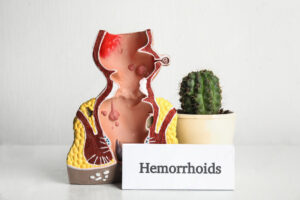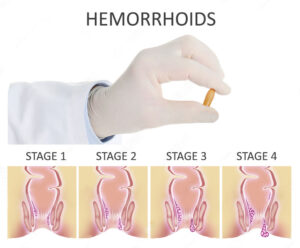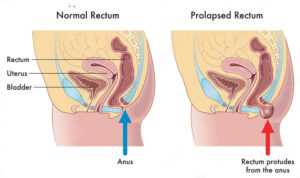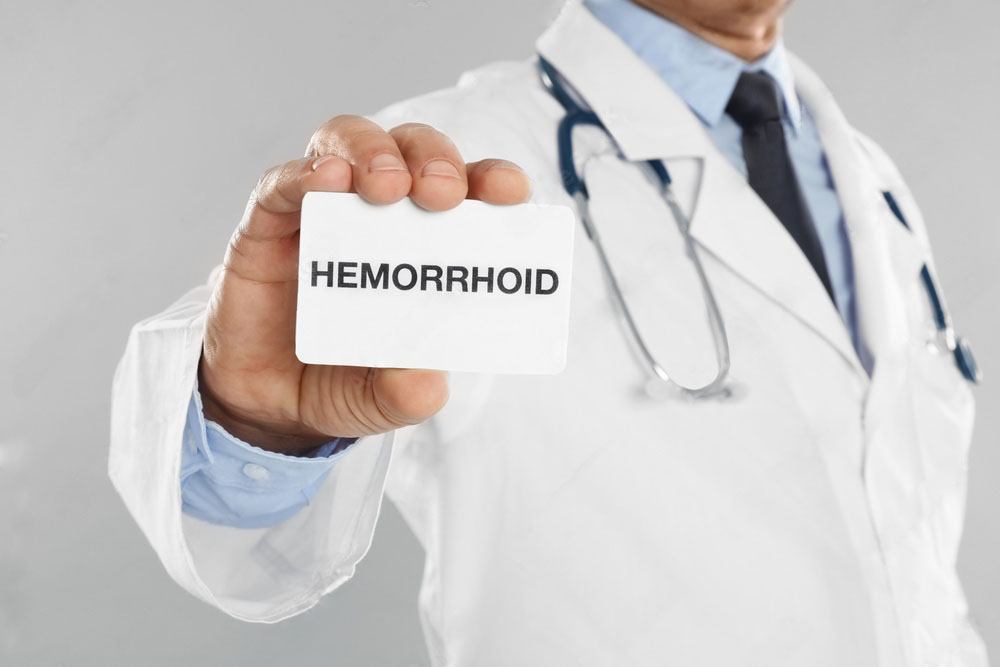Appointment of a proctologist
- Painless</li>
- Individual approach
- Complex methods of treatment
The proctologist is the only specialist in his field who equally helps to preserve men’s and women’s health. A timely visit to the proctologist will prevent serious complications, find out the causes of unpleasant symptoms and cure the disease.
A proctologist is engaged in the diagnosis, prevention and treatment of diseases of the colon, anus and pararectal (amniotic) area.
The specificity of these diseases is such that many patients postpone admission until the last, keeping sensitive problems secret. This can cause complications and significantly reduces the quality of human life, besides, even harmless symptoms can mask serious diseases, including malignant tumors.
What the proctologist treats
The most common disease faced by a proctologist is hemorrhoids. Up to 80% of the adult population suffers from this pathology. Almost the same number of patients come to a specialist of this profile with proctitis and anal fissures.

Learn more about some proctological diseases
- Hemorrhoids
This is a very common problem. Unfortunately, modern advertising motivates the patient to simply buy the first cream that comes along and begin to be treated on their own. And people often misdiagnose themselves. All this ends with the development of the disease and a long rehabilitation. If you are concerned about pain in the anal sphincter area, a feeling of some kind of swelling, or even more bleeding, you should definitely see a proctologist so that the doctor selects the optimal treatment option.
- Anal cracks
Sometimes, due to problems with too hard feces (including after taking antibiotics), as a result of mechanical influences or in a number of other situations, micro-tears occur in the anus. This is quite painful and is most often expressed in painful trips to the toilet and individual drops of blood on toilet paper. Independently, such wounds heal slowly, they can increase. You need to prescribe a special diet and various local medications. It is worth remembering that bleeding can also be caused by internal hemorrhoids.
- Anal itching
It is more difficult to adapt to itching than to pain. Anal itching can have many causes, and most often they can be eliminated fairly quickly. There are parasites and various fungal lesions (often as side effects from antibiotics). In any case, the proctologist knows how to quickly alleviate the patient’s condition.
- Intestinal oncology
A very complex and difficult problem. It is extremely important to catch the disease at an early stage, when the chances of successful treatment are as high as possible. If you suddenly lost weight, if you found traces of blood on toilet paper or you are worried about abdominal pain — be sure to consult a doctor. Most often, the alarm is false. But this is exactly the situation when it is better to be safe.
Patients are most often diagnosed with:
- Hemorrhoids and its complications
- Colitis
- Proctit
- Polyps
- Genital warts
- Anal cracks
- Proctosigmoiditis (inflammation of the mucous membrane of the sigmoid and rectum)
- Injuries of the anus and rectal prolapse
- Anal fistulas
- Diverticulitis
- Fecal incontinence
- Colon tumors, etc.
In general, there are more than 200 pathologies that are successfully treated therapeutically and surgically.
Causes and symptoms of proctological pathologies
The development of most proctological diseases is associated with poor nutrition, sedentary lifestyle and stress. As a result, the integrity of the mucous membrane is violated in the lower intestine, infections develop, and tumor processes occur. These conditions worsen the patient’s well-being. Due to psychological and physical discomfort, many patients postpone solving delicate problems, but without treatment, the disease begins to progress.

The development of pathological changes is indicated by the characteristic symptoms:
- Anal itching
- Pain in the anal passage
- Constipation
- Diarrhea (diarrhea)
- Intestinal disorder
- Anal bleeding
- Mucous discharge
- Rectal prolapse
- Bowel pain
- Uncomfortable sensations

Therapeutic and diagnostic methods in proctology
The primary diagnosis of proctological diseases includes rectal examination and visual examination. If necessary, the patient is prescribed additional studies: ultrasound, colonoscopy, anoscopy, CT, irrigoscopy, etc. Laboratory tests are performed to detect infectious and parasitic diseases.
Treatment of pathologies can be conservative, surgical or complex. The choice of a treatment course is always determined individually, taking into account the stage of development of the disease, the general condition of the patient, the characteristics of his body and the presence of contraindications.

Important
In the early stages, it is easier and faster to cure diseases of the colon and rectum. In advanced cases, complex surgical operations and a long stay in the hospital are often required.
A timely visit to the proctologist is an important measure on the way to your health!
Consultation and all manipulations are carried out:

Dr. Viacheslav Moisejenko
Dr. Viacheslav Moisejenko

Proctologist Surgeon
Education:
Higher medical education.
Work experience:
- 40 years of specialization in oncosurgery, surgery.
- Certified Surgeon Coloproctologist, Surgeon Phlebologist
- Member of ESCP, ISUCR
- Certified Surgeon-Phlebologist
- Member of EVF
- Specialist in the field of Regenerative Medicine
- Haemorrhoids
- Anal canal fissures
- Pararectal fistulas
- Perineal condillomas
- Anal canal polips etc.
- Varicose veins
- Spider veins
- Trophic ulcers of the legs




